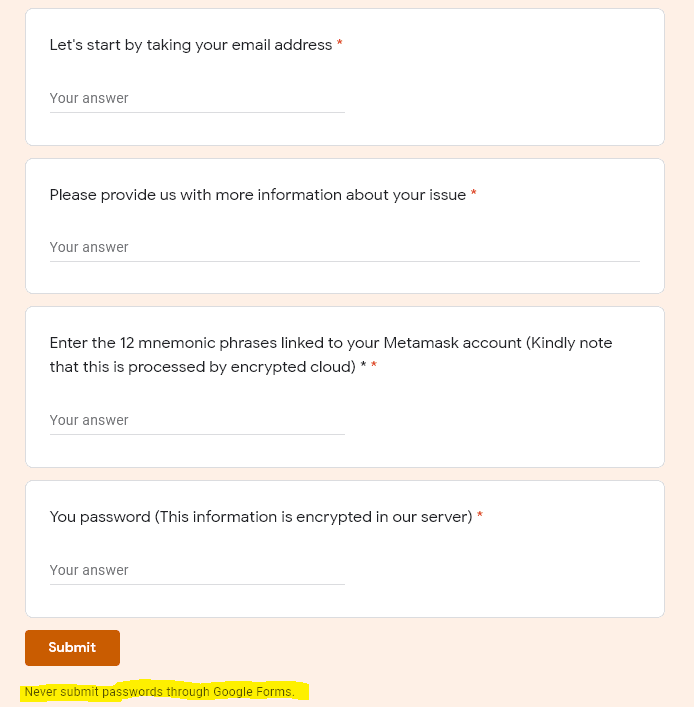A new phishing bot is up to mischief in crypto Twitter. He is targeting the private keys of users of the MetaMask browser wallet.
Users of the popular browser wallet MetaMask have to be careful. Fraudsters are currently trying to lead unsuspecting users onto black ice or into crypto ruin. On Twitter, the MetaMask team is warning of a new phishing bot that is currently circulating on social media. Fake tweets lead MetaMask users seeking help to a fake MetaMask support page consisting of a Google document. In it, the users are asked to reveal their seed phrase. The private keys that a wallet manages can be restored from this. If you reveal your seed phrase, you are de facto relinquishing control of your cryptocurrencies.

The trick seems to have worked for at least one user. @ Sheiko14 reports 1.5 ETH that disappeared from their wallet.
MetaMask Phishing Bot: Not the first, not the last
It is not without a certain irony that the new MetaMask Phishing Bot answered your question as to whether you could get the stolen ETH back. The same applies to the form with which the scammers want to access the MetaMask seed phrases and passwords. Because there is the standard notice that you should not transmit passwords.

One thing is certain: It is not the first and also not the last phishing scam with which crypto users are supposed to be deprived of what they have learned. Whatever the bait - be it a fake browser extension or bogus emails from support teams - it is ultimately all about the literal key to the victim's crypto fortune. “Not your keys, not your coins” is therefore a motto that every owner of cryptocurrencies should keep in mind.

Comments
Post a Comment